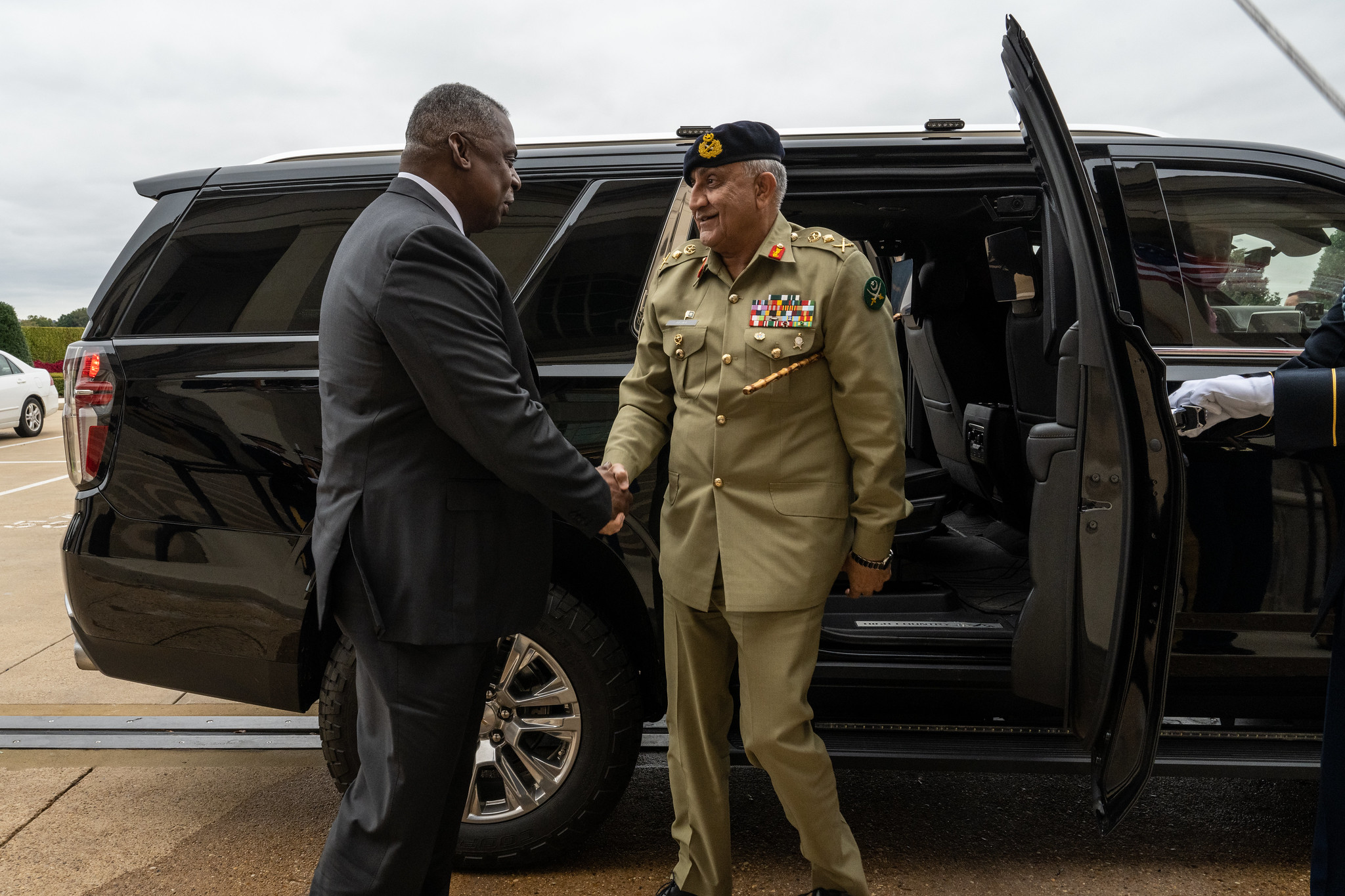US recently honouring Gen Bajwa has raised questions in Washington on the long term effects of Biden cozying up to Pakistan.
New Delhi: The highest ceremonial honours, that of “Honor Cordons” which the Joe Biden administration gave to Pakistan army chief General Qamar Javed Bajwa during his seven-day visit to Washington is being described by Islamabad-based observers as a “turning of leaf” event in the bilateral ties between Islamabad and Washington. The respect given to Bajwa was akin to what Ben Wallace, Defence Secretary, United Kingdom and Ukrainian Defence Minister Oleksii Reznikov, received during their recent visit to the states. Interestingly, the said honours was accorded to India Foreign minister S. Jaishankar when he visited the United States days before Bajwa’s visit.
However, it has led to questions being raised within Washington on the long term effect of Biden cozying up to Pakistan, something which has never served any past president well, as George Bush and Barack Obama learnt the hard way. During the tenure of Bush, analysts at the State Department and those at the Pentagon got a rude shock by way of the 9/11 attack, which was planned by people sitting inside Pakistan. Similarly, the Central Intelligence Agency (CIA), after spending billions of dollars and countless hours, too realised that the man they were looking for so desperately for his role in the 9/11 attack, Osama Bin Laden, was hiding under the guidance of the Pakistan army and at a home that was less than 4 km from the Pakistan military academy and the headquarter of an army battalion at Abbottabad.
Later in 2012, documents put out in public domain by Wikileaks confirmed that Laden was in routine contact with several senior figures from the Pakistan military and its intelligence arm, ISI, while hiding in the country.
It was also during the tenure of Barack Obama, who was extremely liberal when it came to loosening US purse strings for Islamabad, that Pakistan came closer to Beijing which culminated with the signing of the multi-billion China-Pakistan Economic Corridor (CPEC), a series of investment related projects that would be built by China in Pakistan, which was already receiving billions of dollars from Washington for being a part of “fight on terror”. Today, the same advisors and bureaucrats at the Hill are spending billions of dollars to contain Beijing.
The killing of Laden’s successor, Ayman al-Zawahiri, in July this year in Kabul, which the US forces were able to do—which is now crystal clear in view of the developments that have happened after his death—after inputs received from ISI and GHQ Rawalpindi, is perhaps an atonement by the Pakistan military for the disservice that they have done with successive “Potuses’ in the past. According to Indian officials, Islamabad, due to its unique position of being a rival to Delhi, is courted and treated as important by both Washington and Beijing, something which Islamabad, too, has come to realize.
If the US has to rebuke India or show it is upset or wants to interfere in India’s external policies, it uses Pakistan as a tool, as it has been doing for the past few days now, after India refused to side with Washington on the issue of cornering Russia over the war in Ukraine.
Similarly for Beijing–which considers Delhi as its only rival in South Asia–Islamabad comes as its most important tool for achieving strategic goals on India’s Western and Eastern borders. However, while Washington keeps oscillating between Delhi and Islamabad based on its strategic needs and change of Presidents and advisors to them, India has remained constant as far as Moscow is concerned, irrespective of the party in power in Delhi, something which Jaishankar reiterated while speaking in Canberra recently. “The inventory of Soviet and Russian-origin weapons grew for various reasons, including the West not supplying weapons to India for decades and in fact seeing the military dictatorship next to us as preferred partner,” the minister said.
This policy–of India refusing to become another Pakistan in the South Asian region which is used and misused by the US as a strategic tool as people in Washington would like to believe–will continue to stand, officials in Delhi indicated.

